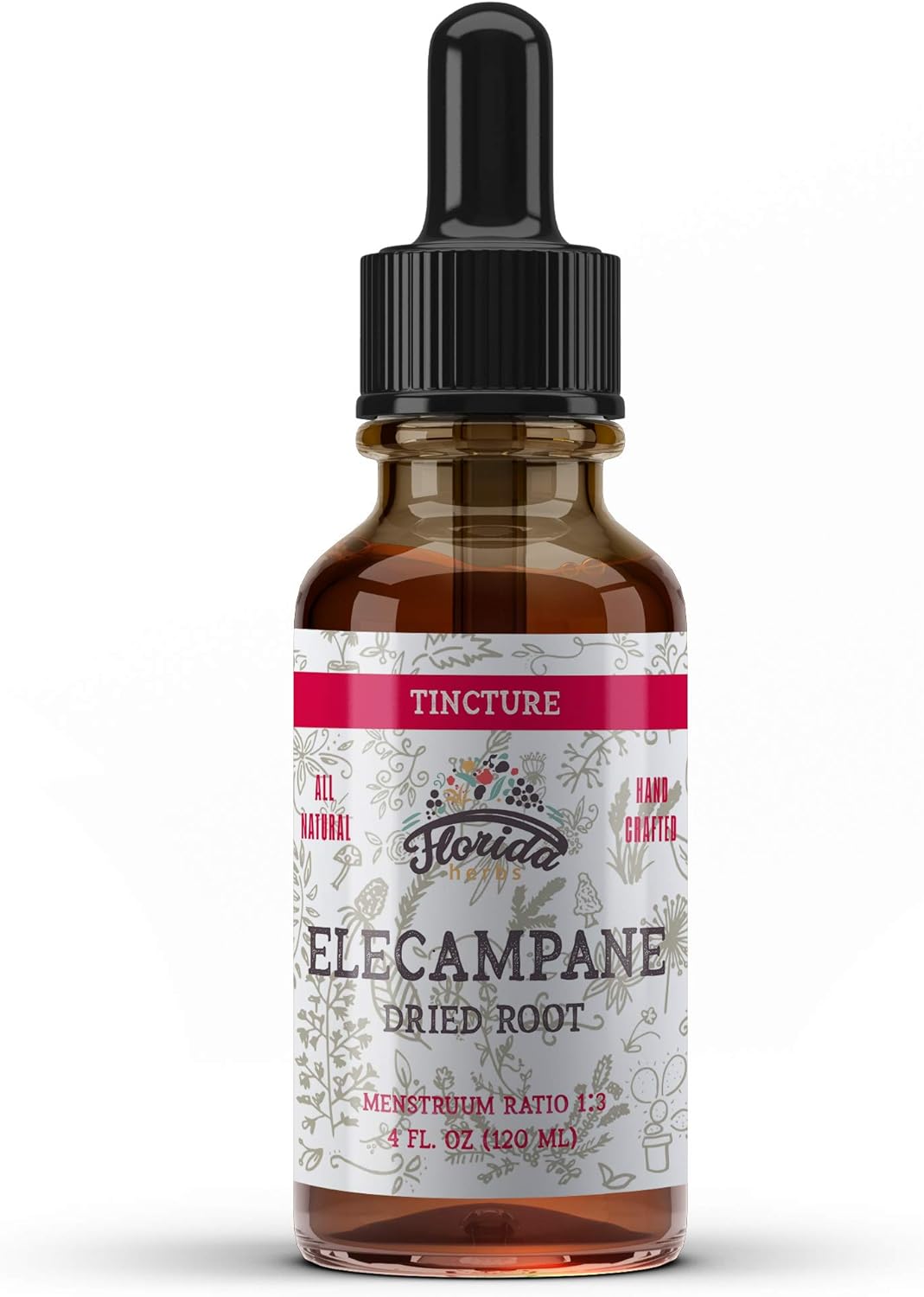
Benefits of Elecampane Root Supplements
- by Barbara Santini
- Posted on April 1, 2024
Elecampane root, derived from the plant Inula helenium, has a storied history in herbal medicine, treasured for its numerous health benefits. This perennial plant, characterized by its tall stature and bright yellow flowers, has roots that delve deep into traditional medicine across Europe, Asia, and even the ancient Romans and Greeks, who valued it for its medicinal properties. Today, elecampane root supplements are sought after for their potential health benefits, which range from respiratory support to antimicrobial activity. This guide delves into the myriad benefits of elecampane root supplements, supported by traditional uses and emerging scientific research.
Historical Use and Cultural Significance
Elecampane root has been used in traditional medicine for over two thousand years, revered by ancient civilizations for its healing properties. It was traditionally used to treat digestive disorders, respiratory conditions, and even as a natural antiseptic. In the Middle Ages, elecampane root was a common remedy for tuberculosis and other respiratory ailments, highlighting its long-standing association with lung health.
Respiratory Health
One of the most well-documented benefits of elecampane root is its support for respiratory health. The root contains compounds such as inulin, helenin, and alantolactone, which are thought to have expectorant, antitussive, and antimicrobial properties. These compounds can help loosen phlegm, ease coughing, and fight off respiratory infections. Elecampane root supplements are often recommended for individuals suffering from chronic bronchitis, asthma, and other conditions that affect breathing.
Digestive Aid
Elecampane root is rich in inulin, a type of prebiotic fiber that supports healthy digestion by promoting the growth of beneficial gut bacteria. This can help maintain a balanced digestive system, alleviating issues such as bloating, constipation, and diarrhea. Furthermore, the antimicrobial properties of elecampane root can help combat pathogenic bacteria in the gut, potentially reducing the risk of gastrointestinal infections.
Antimicrobial Properties
Research has shown that elecampane root possesses significant antimicrobial properties, effective against a variety of bacteria and fungi. This can make elecampane root supplements a valuable natural remedy for infections, particularly those that are resistant to conventional antibiotics. The root’s active compounds, including alantolactone, have been shown to inhibit the growth of harmful microbes, offering a promising alternative for treating infections.
Immune System Support
Elecampane root can also play a role in supporting the immune system. Its antimicrobial and anti-inflammatory properties can help protect the body against pathogens and reduce the severity of infections. By bolstering the body’s natural defenses, elecampane root supplements can contribute to overall health and well-being, making them a valuable addition to a holistic approach to immune support.
Anti-inflammatory Effects
Chronic inflammation is a contributing factor to many diseases, including heart disease, arthritis, and diabetes. Elecampane root contains compounds that have been shown to possess anti-inflammatory properties, potentially reducing inflammation and alleviating pain associated with inflammatory conditions. This can be particularly beneficial for individuals suffering from arthritis or other inflammatory disorders.
Cardiovascular Health
While research on elecampane root’s effects on cardiovascular health is still emerging, its anti-inflammatory and antioxidant properties suggest it may offer benefits. By reducing inflammation and oxidative stress, two key factors in the development of heart disease, elecampane root supplements could potentially support heart health and reduce the risk of cardiovascular diseases.
Antioxidant Properties
Elecampane root is rich in antioxidants, which protect the body from oxidative stress and cellular damage. These antioxidants can neutralize harmful free radicals, reducing the risk of chronic diseases and supporting overall health. The antioxidant properties of elecampane root make it a valuable supplement for those looking to protect their cells and DNA from damage.
Potential Anticancer Effects
Preliminary research has indicated that elecampane root may possess anticancer properties, with studies suggesting that its compounds can induce apoptosis (cell death) in certain cancer cells. While these findings are promising, more research is needed to fully understand the potential of elecampane root in cancer prevention and treatment.
Usage and Dosage
When considering elecampane root supplements, it’s essential to follow recommended dosages and consult with a healthcare professional, especially for individuals with pre-existing health conditions or those taking medication. Elecampane root is generally considered safe for most people when taken in moderation, but it’s important to adhere to dosage guidelines to avoid potential side effects.
Conclusion
Elecampane root supplements offer a range of health benefits, from respiratory and digestive support to antimicrobial and anti-inflammatory effects. With its rich history in traditional medicine and a growing body of scientific research supporting its use, elecampane root can be a valuable addition to a natural health regimen. However, as with any supplement, it’s important to use elecampane root thoughtfully and consult with a healthcare provider to ensure it’s appropriate for your individual health needs and circumstances. Whether you’re looking to support respiratory health, boost your immune system, or explore natural remedies for digestive issues, elecampane root supplements may offer a holistic solution to improving your health and well-being.
Barbara is a freelance writer and a sex and relationships adviser at Dimepiece LA and Peaches and Screams. Barbara is involved in various educational initiatives aimed at making sex advice more accessible to everyone and breaking stigmas around sex across various cultural communities. In her spare time, Barbara enjoys trawling through vintage markets in Brick Lane, exploring new places, painting and reading.
[email protected]
- Exploring Just Kratom Capsules: My Top Picks and Honest Reviews of Every Strain - August 29, 2024
- Craftsman Series by Vessel: Stylish Vape Pens Reviewed from a User’s Perspective! - August 1, 2024
- Benefits of Eucalyptus Supplements - April 1, 2024
Elecampane root, derived from the plant Inula helenium, has a storied history in herbal medicine, treasured for its numerous health benefits. This perennial plant, characterized by its tall stature and bright yellow flowers, has roots that delve deep into traditional medicine across Europe, Asia, and even the ancient Romans and Greeks, who valued it for…
